“All go to one place; all come from dust, and all return to dust. Who knows if the spirit of man rises upward and the spirit of the animal descends into the earth? I have seen that there is nothing better for a man than to enjoy his work, because that is his lot. For who can bring him to see what will come after him?
(Ecclesiastes 3:20-22, The Bible)
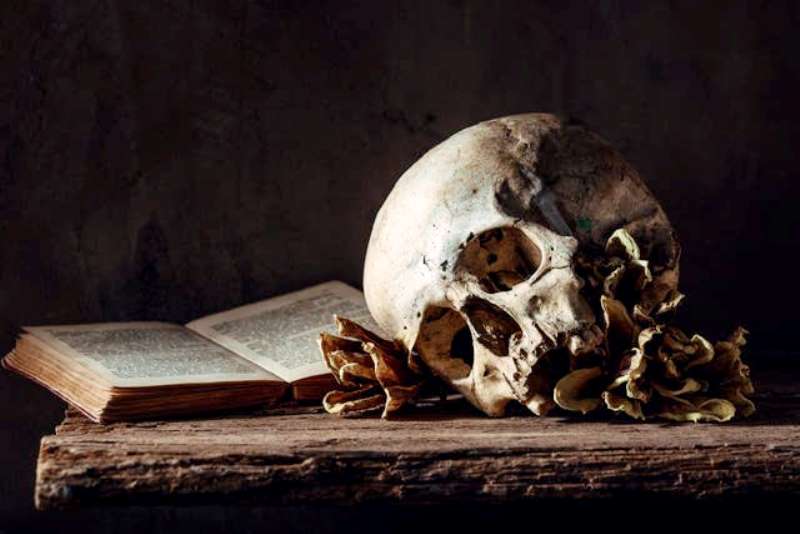
Many believe in the existence of God and life after death. But some of us do not believe in God or an afterlife. There are also people who tend to believe in God or afterlife, although they admit that such a belief is not based on any convincing knowledge or definite ideas about God or afterlife. Another set of people believe that the questions about the existence of God and afterlife are fundamentally unanswerable. Irrespective of our perspectives on the existence of God and afterlife, the fact remains that for most of us, if not all, death is an appalling and often paralysing thing to think about. Perhaps, the terror of death is misplaced. Perhaps, there are alternative ways to look at death without being hit by its fear and pain.
Let us first look at the universe and how important is the earth and its occupants in the universal scheme of things. Our current scientific understanding of the creation of the universe is defined by the ‘Big Bang’ theory. It states that some 13.77 billion years ago (give or take 40 million years) the entire universe had started building itself from its minuscule state of super compressed particle of energy. The earth came into existence around 4.5 billion years ago as part of the ‘Big Bang’ process. This process is still on as indicated by the continuing expansion of the universe at speeds greater than the speed of light. (The value for the speed of light in a vacuum is 299,792,458 metres per second.) Because of this continuing inflation, science cannot know the exact size of the universe. Besides, much of the universe remains invisible to existing technologies. Nevertheless, it is estimated that the visible universe is currently some 93 billion light-years across. (A light year is the distance light travels in one year, which is 9.46 trillion kilometres). The true size should be many times higher. Maybe there are other universes too!
And how did humans emerge? In his bestseller ‘Sapiens, A Brief History of Humankind’, Professor Yuval Noah Harari says that organism emerged (and biology began) some 3.8 billion years ago. Last common grandmother of humans and chimpanzees appeared six million years ago and the evolution of the genus Homo took place 2.5 million years ago in Africa. Some two million years ago, the process of evolution brought forth different human species. Neanderthals evolved in Europe and the Middle East 500,000 years ago. We, Homo sapiens (Wise Man), evolved in East Africa some 200,000 years ago. They started spreading out of Africa 70,000 years ago. The migration of Homo sapiens to other countries apparently caused the extinction of other human species. All other human species became extinct some 13,000 years ago, with Homo sapiens alone surviving.
The point is that the planet we occupy is a mere speck of dust in an immeasurably huge and continuously inflating universe. And human lifespan is an infinitesimally tiny fragment in the life of the universe. In other words, humans are too insignificant an element in the universal scheme of things. It is purely human delusion that we are something grand. It matters little to the universe whether we live or die; exist or cease to exist. Perhaps, even the divine, supposedly sitting in a heaven somewhere above our heads, would be too occupied with the affairs of this enormous universe to pay any attention to human affairs. In short, whatever significance we assume for human life on earth is entirely rooted in our own illusive pretensions of grandeur. Our birth or death should hardly be of any concern for the universe.
In all likelihood, when you die, you disappear completely and forever. All alternatives are stories created in the last few thousand years by thinking humans who sought to explain the mystery of existence. Unfortunately, they did not have the benefit of the knowledge of modern science. The scriptures they created are the outcome of their prescientific ignorance. No wonder that the people who created the holy books of the religions imagined the earth to be a flat disc secured firmly in its place. They also imagined multi-level worlds above and below this disc – the heavens and the underworlds. Of course, the holy books have its relevance in the realm of spirituality. The problem arises when the faithful insist that their scripture carries scientific knowledge!
Around 7.5 billion people live on the earth today. In 100 years from now, this massive population will die and be gone forever (assuming science does not come up with the means to eliminate or postpone death). How many of these dead billion will be remembered, say 200 years s after their exit from this planet? How many of the billions that died since the dawn of history are remembered now? Each one of us is just one of the 7.5 billion people waiting to die in the next 100 odd years. Maybe, the earth itself would cease to exist in the next five billion years! The point is that we humans have hardly any insignificance in the overall scheme of things.
We tend to reflexively repulse the truth about the insignificance of our existence. But, our refusal to recognise it does not make this reality go away. Death remains the inevitable end for everything alive. Yet, whenever the reality sneaks up in our thoughts, we consistently push it to the back of our minds for fear that if we allow it to sit in our minds, even for a minute, it will swallow up everything else. We fear that it can make everything we do, and everything anyone else does, seem meaningless and trivial to the point of absurdity. It can make people feel erased. It can wipe out joy and make your life appear like ashes in your hands. The strange truth is that even people who are cocksure of going to heaven to blissfully with God forever, do not want to die to get there! Everyone is in the grip of existential despair.
Maybe, it is possible for all of us irrespective our perspectives of God and afterlife to feel okay about death. Perhaps, there are ways to experience the death of other people and to contemplate our own imminent death that allow us feel the value of life without denying the finality of death. Perhaps, there are ways to think about death that can give us peace and solace; ways that allow our lives to have meaning. And such approaches to dealing with death have nothing whatsoever to do with speculations about any kind of God, or any kind of afterlife.
In this approach to being comfortable about death, the first thing of significance is time. We live in time. Our existence and experience are dependent on the passing of time. The foundation of our consciousness, and its warp and weft are all inherent to time. We cannot imagine what it would mean to be conscious without passing through time and being aware of it. There may be some form of existence outside of time, some plane of being in which change and the passage of time turns an illusion; but it certainly isn’t ours.
As time passes, changes happen. Time related changes are inevitable. Thus, time and change are integral to, who we are. The changes inherent in the passing of time has loss and death woven into it: Each new moment kills the moment before it, and its own death is implied in the moment that comes after. There is no way to exist in the world of change without accepting loss: the way the sky looks right now, the number of birds in the tree outside your window, the temperature, the movement of air, the placement of your body and the state of its chemistry, the people in the street… Everything is shifting constantly. You never get to have this exact one moment in time once again. “No man ever steps in the same river twice, for it’s not the same river and he’s not the same man” (Heraclitus).
Nothing in the universe stays as it is. Everything is in motion; everything is changing. And that’s a good thing, too. Because all the things that give joy and meaning in our lives – music, conversation, dining, dancing, playing, reading, thinking, making love, all of it—are linked to the passing of time, and on changes taking place from moment to moment. Joy and meaning comes out of the loss of infinitude of passing moments.
We don’t get to have existence without loss. We don’t get to have anything without allowing their existence and our experience of them to come into being and then pass on. We don’t get to read a book without turning pages in time; we cannot enjoy a film without the scenes shifting in time; we cannot have food without the ingredients changing in time; we cannot walk in the forest without passing by each tree and letting it fall behind us; we don’t even get to stand still in the forest and gaze at one tree for hours without seeing the wind blowing off a leaf, a bird breaking off a twig for its nest, the clouds moving behind it – each manifestation of the tree dying and a new one taking its place with the passing of time.
The alternative to this situation would be time frozen – a single frame of the film, with nothing to precede it and nothing to come after; the cover page of the book with its contents remaining underneath, absolutely useless. There can be no life if everything stays frozen in time. It is unlikely that any of us would want that. And if we want a world of change, then it is worth our while to accept, and even love, the loss and the death that make the change possible.
Imagine, for a moment, stepping away from time, the way you would step back from a physical place, to get a better perspective on it. Imagine being outside of time, looking at all of it as a whole – history, the present, the future – the way the astronauts stepped back from the earth and saw it whole. Keep that image in your mind. Like a timeline in a history class, but going infinitely forward and infinitely backward. And now think of a life, a segment of that timeline, one that starts in, say, 1953, and ends in, say, 2033. Does that life go away when 2033 turns into 2034? Do the years 1953 through 2033 disappear from time simply because we move on into a new time, any more than Chicago disappears when we leave it behind and go to California? It does not.
The time that you live in will always exist, even after you’ve passed out of it, just like Paris exists before you visit it, and will continue to exist after you leave the city. And the fact that people in the twenty-third century will probably never know you were alive would not make your life disappear, any more than Paris disappears if your cousin never sees it. The fact of your death doesn’t make the time that you were alive disappear. And it doesn’t make it meaningless. Your segment on the timeline will always be there. It is true that we have only a tiny slice of time considering the infinitude of time that came before we were born, or the infinitude that will follow after we die. Nevertheless, it is inalienably our own slice of time!
I don’t know what happens when people die. I don’t know whether the virtuous among dead goes to heaven somewhere above to live forever in pearly mansions built for them. I do not know whether there is a hell somewhere underneath where the dead sinners are tortured forever. I do not know if the dead acquire a different body and come back for another term on earth, or if we get to hover over time and space and view it in all its glory and splendour, or if our souls dissolve into the universal-soul the way our bodies dissolve into the dust. Or do the dead simply disappear forever.
In short, I have no idea where the dead goes. For all the tall claims people make, nobody really knows what happens to people who die. And none can know it, at least as on today! And I don’t know it matters. What matters is that we get to be alive. We get to be conscious. We get to be connected with each other, and with the world, and we get to be aware of that connection and to spend a few years mucking about in its possibilities.
We get to have a slice of time and space that is ours. We have got the slice of time that has AIDS, the Internet, the Mobile Phone, the Space Shuttles, and the Corona Virus. People who came before us got the slice of time that had horse-drawn carriages, Colonialism and dysentery, or the one that had stone huts and Viking invasions and pigs in the yard. And the people who come after us will get the slice of time that has, maybe, flying cars, time travel, and identity chips in their brains.
But our slice is no less important because it comes when it does. It is no less important because we’ll leave it someday. The fact that time will continue after we die does not negate the time that we were alive. We are alive now, and nothing can erase that truth. That is what matters. The rest is all tarradiddle… So, “Fear of death is ridiculous, because as long as you are not dead you are alive, and when you are dead there is nothing more to worry about!” (Paramahansa Yogananda).
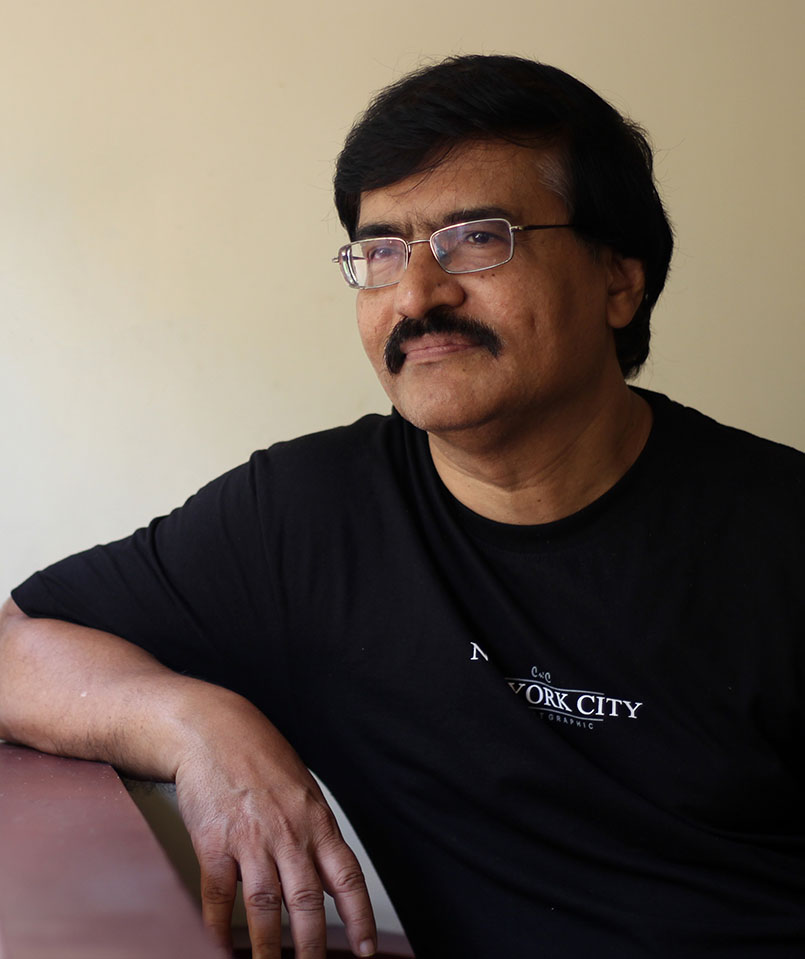


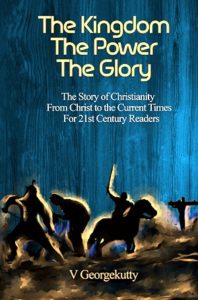



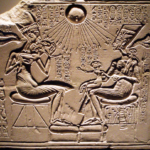

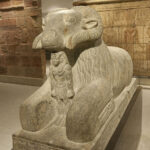

This writing reminds me of the recent mega magnetic wave coming from the Sun. You were not active before, now like a volcano thoughts are flowing which is good. Be like a active volcano always burning inside seeking
the best of thoughts then it spills over.
I like it. Expecting more flow from time to time till we pass the barrier to the other side of Jordan
Audio Georgekutty
Dear Mathew,
Thank you Sir.
I could not be much active for a while since I was unwell. I am more or less okay now and hope to write more frequently.
Kind Regards,
George kutty
Happy to read your post after a long time. I wish you good health and happiness always. The topic is quite interesting as people will have aversion to the word “death”. Unfortunately the fact is that every beginning has an end. The material body is mortal and its soul is immortal and indestructible. Opinions differ from person to person but reality is supreme. Keep writing thought invoking issues. Good luck.
Dear Sambandan Sir,
Thank you. Hope you are okay.
Regards.
George kutty
Is it normal to be scared of death?
“Having some anxiety about death is an entirely normal part of the human condition. However, for some people, thinking about their own death or the process of dying can cause intense anxiety and fear. A person may feel extreme anxiety and fear when they consider that death is inevitable.” Is It Possible to Ease the Fear of Death? 9 Tactics to Help. https://www.psychologytoday.com/us/blog/changepower/202003/is-it-possible-ease-the-fear-death-9-tactics-help
Dear Thomas Varghese,
Thank you.
Regards,
Georgekutty (Author)